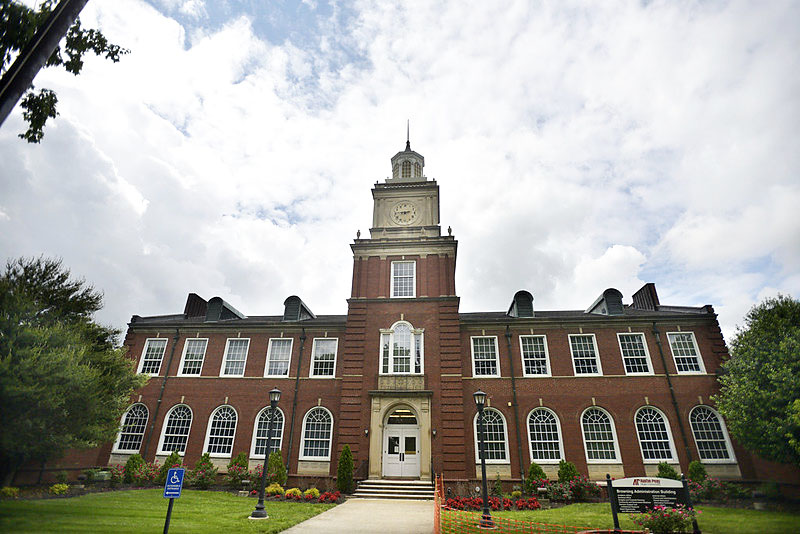
In higher education, we often lean on the expertise of technical and community college programs to fulfill workforce needs. Indeed, Tennessee Colleges of Applied Technologies (TCATs) and community colleges recently announced record number of degrees and certificates awarded in the academic year 2019-2020. However, Tennessee public universities also play an important role in meeting and responding to the state’s workforce needs.
Many of Tennessee’s four-year institutions have innovative programming and credentialing alongside the state’s technical and community colleges. Just last year, Tennessee public universities were responsible for more than half (53 percent) of postsecondary credentials awarded. As an example, Middle Tennessee State University (MTSU) created a Data Science Institute that provides research for business and industry partners. To complement the Institute, MTSU developed a Bachelor of Science in Data Science program that allows undergraduate students to gain valuable research experience working with faculty in the Data Science Institute.
Innovative programs like the Data Science program at MTSU demonstrate what is possible when a university program is responsive to industry need. The Tennessee Higher Education Commission (THEC), the state’s coordinating organization for higher education that approves new academic programs at four-year universities, launched a “Future of Workforce Taskforce” to look closely at the intersection of higher education and the workforce in order to promote alignment. THEC brought together industry and education leaders for several discussions about future workforce needs in Tennessee. Although the primary purpose of these conversations was to shape THEC’s updated Master Plan, one of the resulting recommendations was the concept of an expedited approval process for new academic programs at our public universities.
As the state’s coordinating agency, THEC is empowered to bring together key stakeholders and evaluate existing processes and policies to identify areas of improvement. Based on feedback from campus partners, we decided to create a new academic approval policy to better fit the needs of high-demand programs. This meant shortening timeframes for public posting periods and streamlining approval processes. The accelerated program approval process promotes innovative responses to industry need by encouraging public universities to continue to create degree programs aligned to workforce needs while minimizing the time to gain approval and start implementation.
Ultimately, the aim of this new policy is to decrease the time to approve new academic programs that meet workforce, economic, or other state needs while still assuring quality academic programs. Programs eligible for the new policy include;
- Science, Technology, Engineering, and Mathematics programs
- High-demand programs as established in the THEC Academic Supply and Occupational Demand Report or THEC Master Plan
- Programs created in response to demonstrated workforce needs
When a university proposes a new academic program, the proposal must consider how existing Tennessee Transfer Pathways and potential pathways from technical colleges will be incorporated into the proposed programs. The intent is to encourage seamless alignment from technical and community colleges to universities, an important point given the incentive for students to attend technical or community college tuition-free through programs like Tennessee Promise and Tennessee Reconnect.
Initial campus stakeholder engagement has been positive, and several institutions have programs they are preparing to submit under this new process. Our goal, in collaboration with university partners, is to continue providing students with quality academic credentials that have substantial market value and to do so as effectively and efficiently as possible. Looking ahead, we expect more of these collaborative conversations will develop as we work together to ensure Tennessee is providing quality education that addresses workforce needs across all institutions.
Dr. Julie Roberts is associate chief academic officer at the Tennessee Higher Education Commission. Contact her at Julie.a.roberts@tn.gov.
